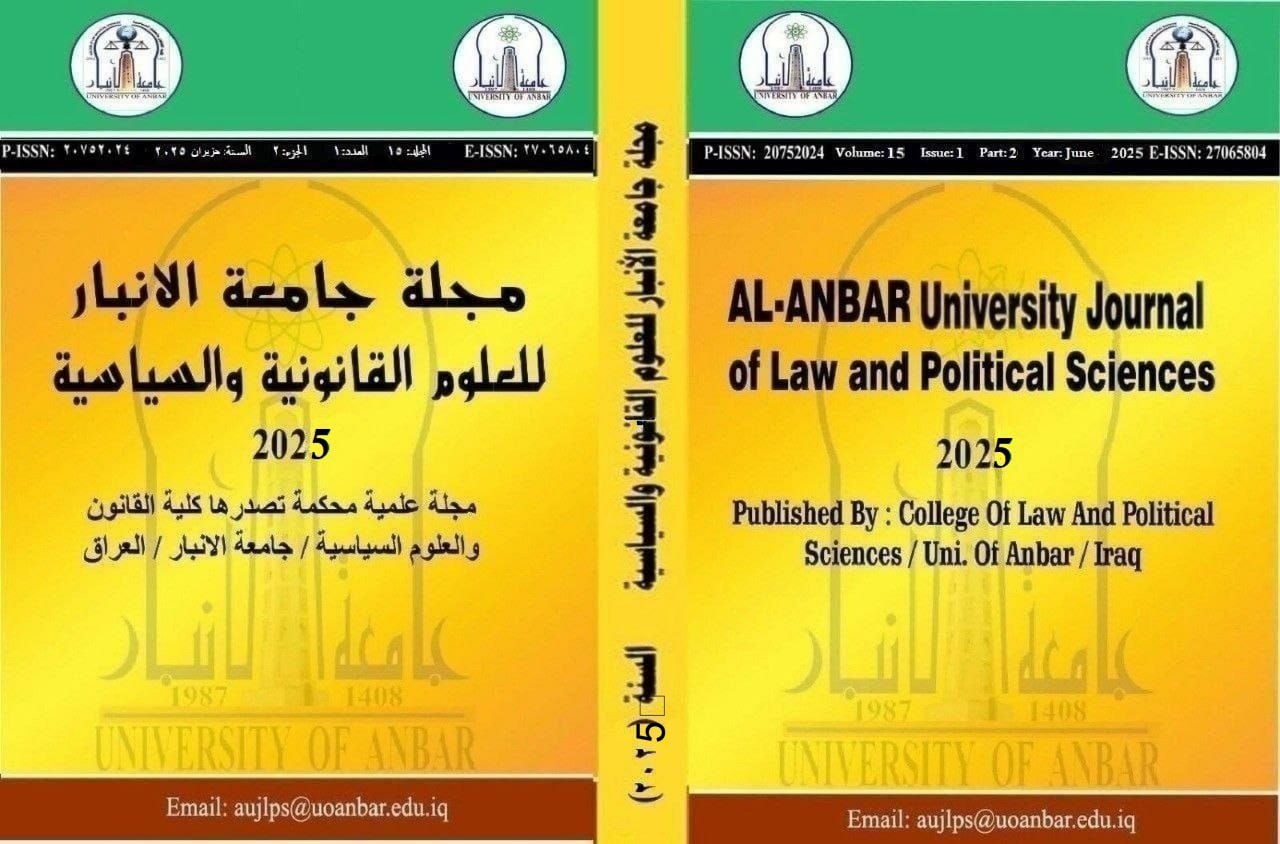Abstract
The study aims to highlight the political impact of tribal dynamics on political life in Iraq, with a focus on Al-Anbar Governorate as a significant case study.
This focus stems from the fact that tribal affiliation is the dominant force shaping social identity in that governorate. The study makes a deliberate distinction between tribal affiliation as a form of social identity, and tribalism as a driving force that influences political and social behavior.
The study is divided into two main parts:
Theoretical – tracing the historical development of tribal influence and its political dimensions since the establishment of the Iraqi state in 1921.
Field-based – examining a survey conducted by the researchers on a random sample of voters during the local provincial council elections in Al-Anbar.
The study concludes that the tribal factor plays a fundamental role in elections—surpassing even political programs and affiliations. As a result, political entities in the governorate are keen to ensure tribal representation among their candidates, particularly by including influential tribal figures.
This focus stems from the fact that tribal affiliation is the dominant force shaping social identity in that governorate. The study makes a deliberate distinction between tribal affiliation as a form of social identity, and tribalism as a driving force that influences political and social behavior.
The study is divided into two main parts:
Theoretical – tracing the historical development of tribal influence and its political dimensions since the establishment of the Iraqi state in 1921.
Field-based – examining a survey conducted by the researchers on a random sample of voters during the local provincial council elections in Al-Anbar.
The study concludes that the tribal factor plays a fundamental role in elections—surpassing even political programs and affiliations. As a result, political entities in the governorate are keen to ensure tribal representation among their candidates, particularly by including influential tribal figures.
Keywords
(Tribe
Al-Anbar Governorate
Local Elections
tribalism
Voter)
Abstract
تهدف الدراسة الى بيان الاثر السياسي للعامل العشائري في الحياة السياسية في العراق بالتركيز على محافظة الانبار كنموذج مهم، باعتبار ان العامل العشائري هوالعامل الاهم الذي يطغى على دوائر الانتماء الاجتماعي في تلك المحافظة، وقد حرصت الدراسة على التمييز بين الانتماء العشائري كانتماء وهوية فرعية اجتماعية، وبين العشائرية كنزعة محركة وموجهة للسلوك السياسي والاجتماعي، وقد توزعت الدراسة على محورين: الاول نظري تتبع التطور التاريخي للعامل العشائري وابعاده السياسية منذ تاسيس الدولة العراقية عام 1921، والثاني ميداني تناول استطلاع اجراه الباحثان على عينة عشوائية من الناخبين في يوم الانتخابات المحلية لمجالس المحافظات في الاتبار، وقد خلصت الدراسة الى ان دور العامل العشائري اساسي في الانتخابات بل ويفوق دور البرامج والانتماء السياسي، ولذلك تحرص الكيانات السياسية في المحافظة على ضمان التمثيل العشائري لمرشحيها لا سيما من الشخصيات العشائرية المتنفذة..
Keywords
(العشيرة ، العشائرية ، محافظة الانبار، الانتخابات المحلية ، الناخب)
